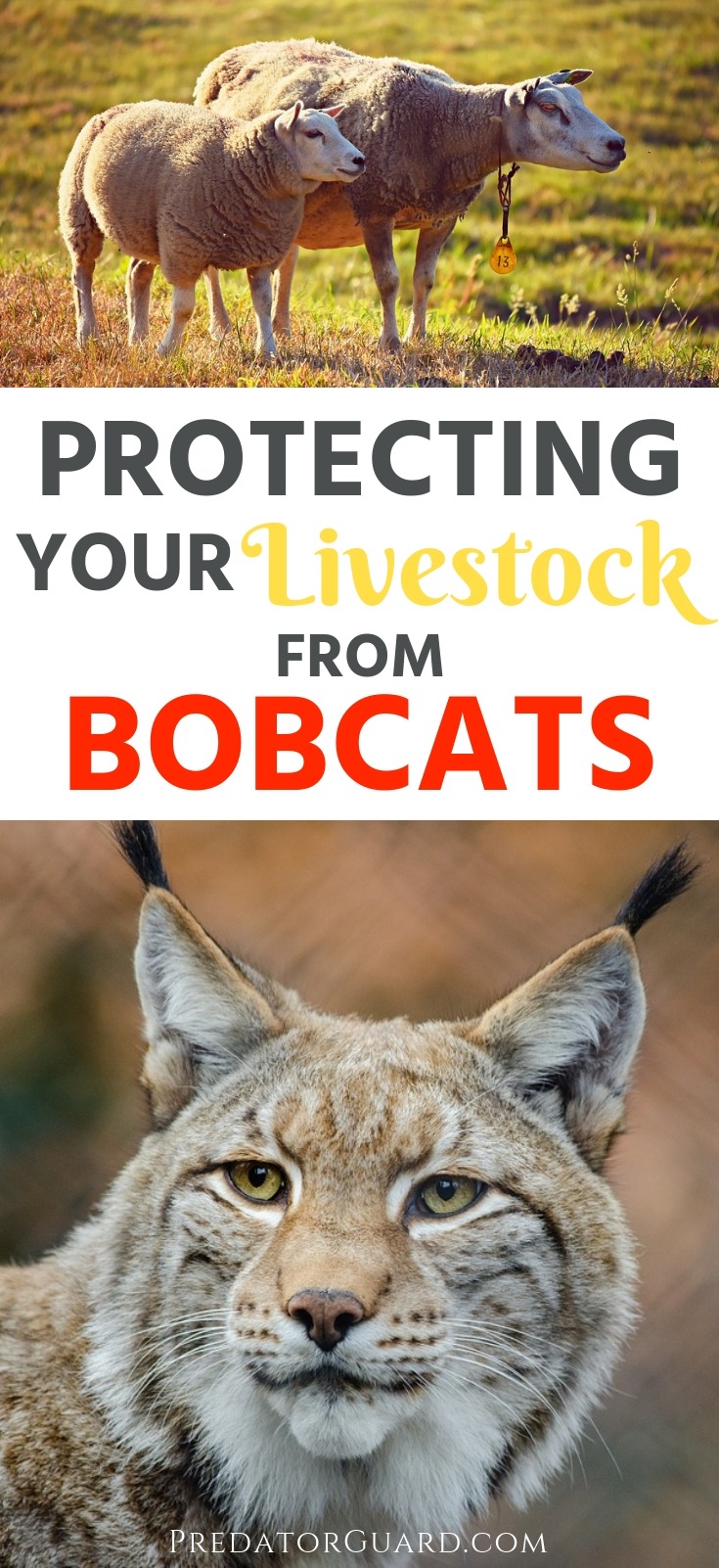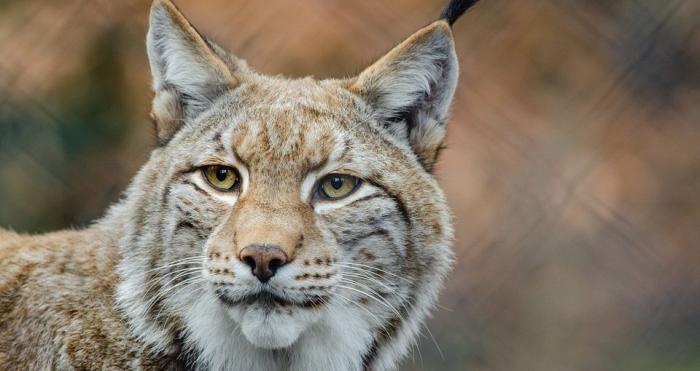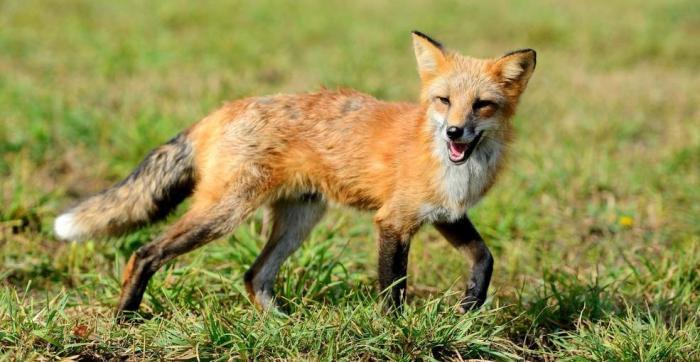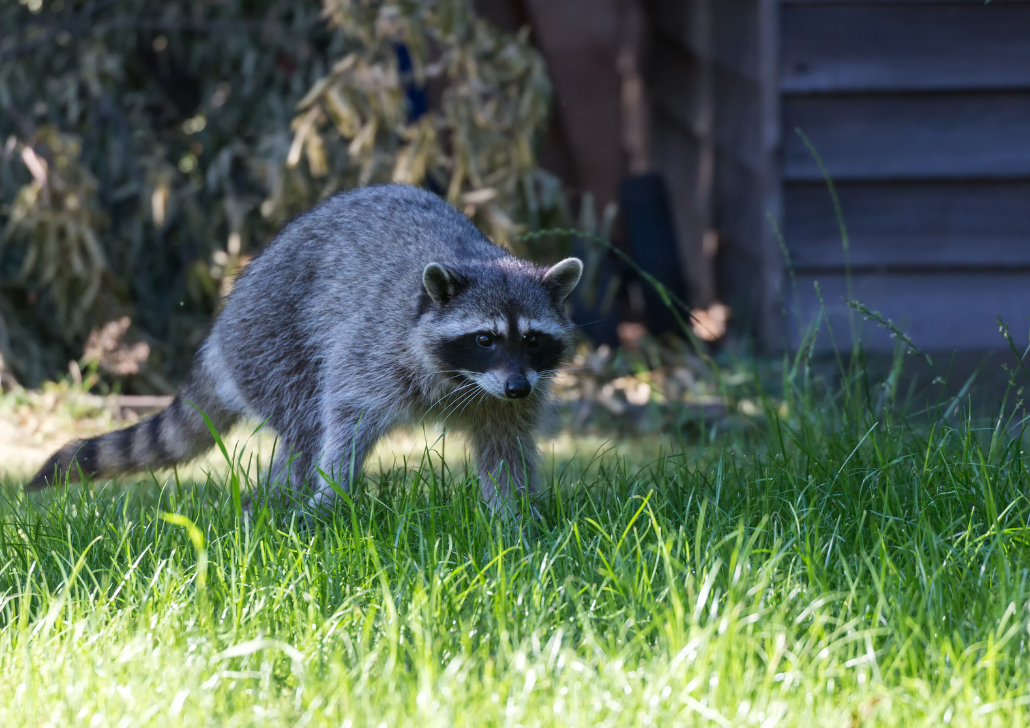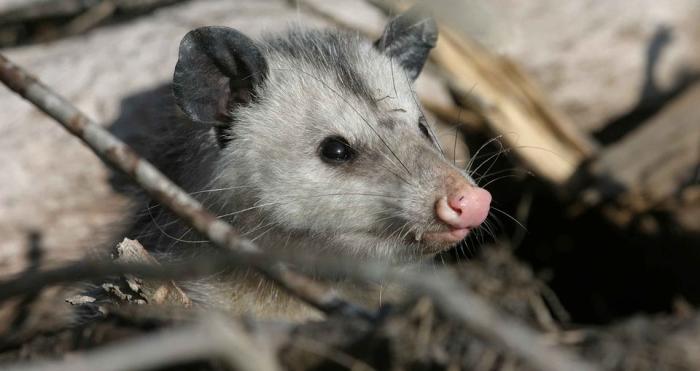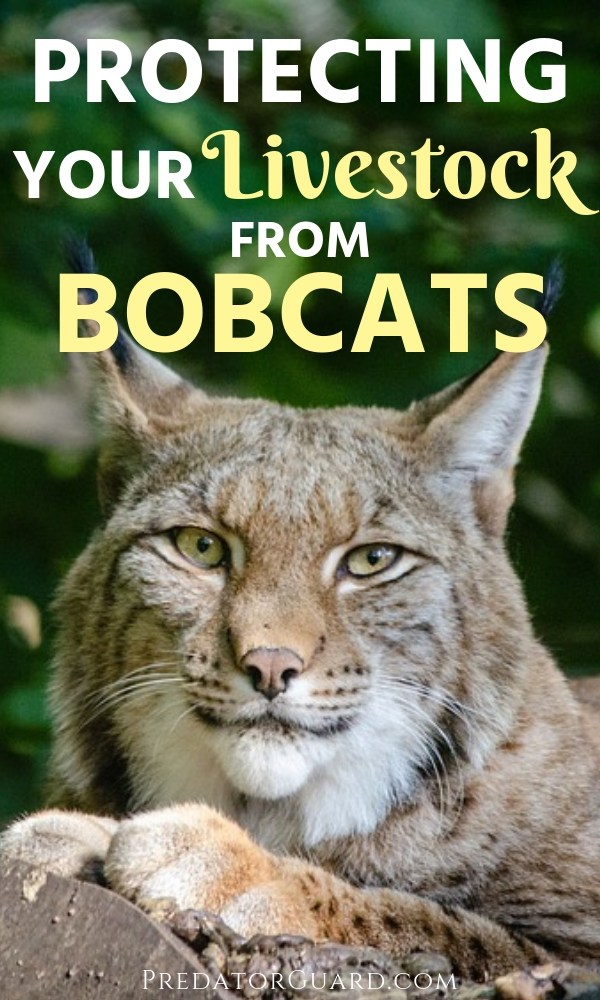
Bobcats are extremely dangerous, and having them on your property should be taken seriously.
Every year or two, my husband retells the story of the time he crossed paths with a snarling bobcat in the middle of the night. In that moment, he was completely defenseless. Thankfully, he slowly inched away and everything was fine.
Generally, bobcats are pretty hesitant of humans and won't go out of their way to attack. They are territorial though, and in rare instances things can turn south.
When you're dealing with bobcats on your property, as long as you're not wandering around at night, you should be safe. Your livestock is a different matter entirely.
Bobcats are extremely elusive, and it's possible you might not ever spot them at all. They're nocturnal, but they'll attack at any time when they're hungry.
It's hard to know what to do in the moment. You catch a bobcat in the act of attacking your animals, and you're not sure whether or not you should intervene.
While it's possible to scare bobcats off before, during, or after an attack, I don't suggest putting yourself in harm's way. Instead, this article is going to focus on how to deter and repel bobcats so they don't come near your livestock in the first place.
Every year or two, my husband retells the story of the time he crossed paths with a snarling bobcat in the middle of the night. In that moment, he was completely defenseless. Thankfully, he slowly inched away and everything was fine.
Generally, bobcats are pretty hesitant of humans and won't go out of their way to attack. They are territorial though, and in rare instances things can turn south.
When you're dealing with bobcats on your property, as long as you're not wandering around at night, you should be safe. Your livestock is a different matter entirely.
Bobcats are extremely elusive, and it's possible you might not ever spot them at all. They're nocturnal, but they'll attack at any time when they're hungry.
It's hard to know what to do in the moment. You catch a bobcat in the act of attacking your animals, and you're not sure whether or not you should intervene.
While it's possible to scare bobcats off before, during, or after an attack, I don't suggest putting yourself in harm's way. Instead, this article is going to focus on how to deter and repel bobcats so they don't come near your livestock in the first place.
Protecting Your Livestock From Bobcats
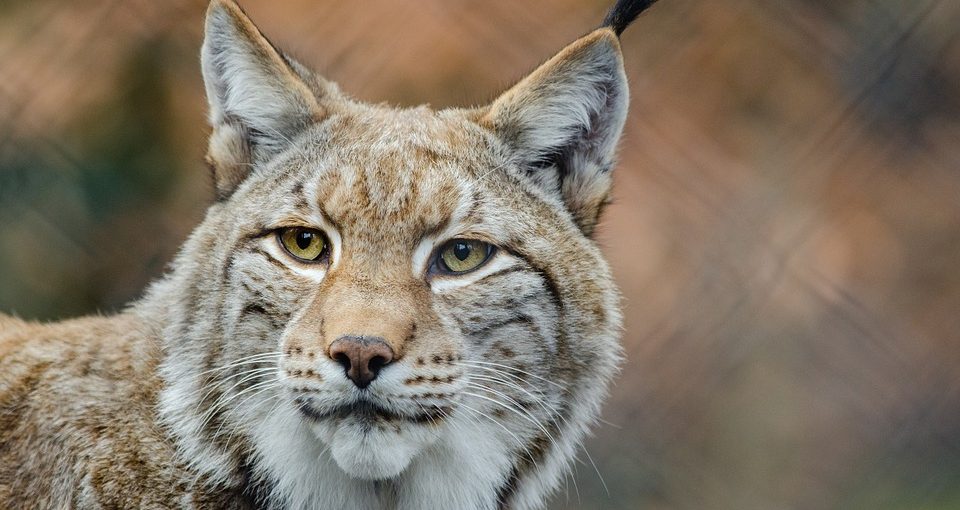

Remove Attractants
Removing things that may be attracting the bobcats to your property is key. Naturally, they'll be attracted to your livestock.
Chickens in particular are a huge attractant. Bobcats have been known to go after larger livestock, but they primarily eat rodents, rabbits, and other small animals.
But it's also smart to remove pet food, and open water sources.
Not only will they eat the pet food if they're hungry enough, it can attract rodents and other pest animals that will further attract the bobcats!
Install Predator Guard Solar LED Deterrent Lights
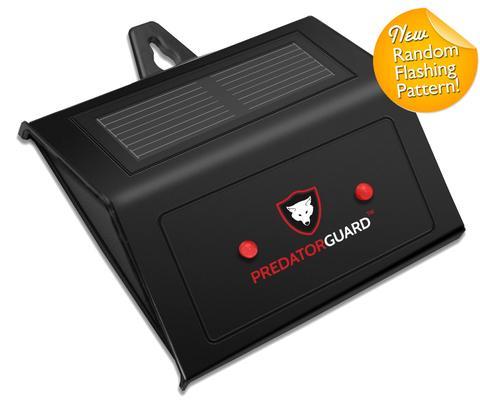
Our Solar LED Deterrent Lights are used to protect livestock all over the world, bobcats and other large predators included.
The twin LED lights are mistaken for the glowing eyes of another predator, sending bobcats running in fear.
These are particularly useful because they glow during the night and low-light hours of the day, which is when bobcats are most likely to attack.
In fact, in Mongolia, they're saving sheep, goats, and snow leopards alike.
Keep Them on Their Toes
Playing music or other strange noises at night, installing motion-activated sprinklers, or anything else that may startle or catch the bobcat off guard is a good practice.
This should be used along with our other tips, and may not work alone.
Lock All Animals Away at Dusk

Sometimes, it can be easy to forget to go out right at dusk to lock up your animals, but if you suspect bobcats are lurking about, it's extremely important. They'll take advantage and strike when you least expect it.
Plus, their eyesight gets increasingly sharp the darker it gets. In fact, when it's completely pitch dark out, a bobcats' eyesight is 6 times better than a humans'.
Final Tips
Some other things you might consider:
- Catch and Release Traps (You'll have to be extremely careful, and you can't release them too far from your property. Once trapped you can also call Animal Control. However, they'll likely release them close to your property as well.)
- Discontinuing Free Range Time For Your Chickens Until The Problem Clears Up
- Getting A Dog
Are bobcats a problem in your area? What do you do to protect your livestock from bobcats? Let us know in the comments below!
If you liked this post, don't forget to pin it for later:
